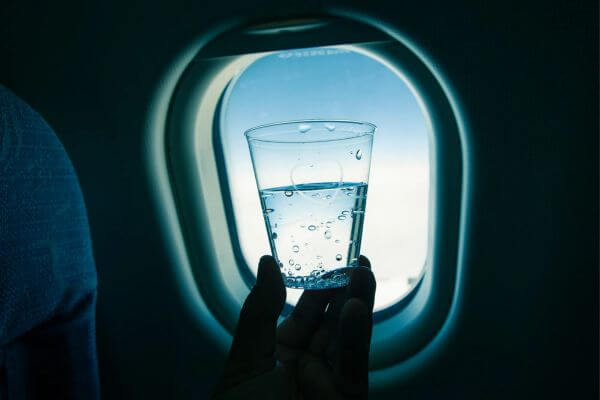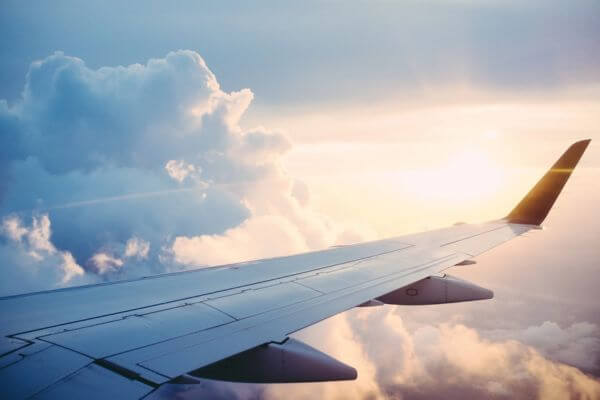Are you tired of feeling completely out of sync and disoriented when traveling to new time zones? Do you long for a sense of belonging and ease when adjusting to different sleep schedules? Well, look no further because we have the ultimate guide to help you overcome jet lag and feel at home in any time zone!
In this article, we will explore various strategies that can assist you in adjusting seamlessly to new time zones. From gradually adjusting your sleep schedule to incorporating exercise and outdoor activities into your routine, we’ve got all the tips and tricks you need. We understand that deep down, we all desire a sense of belonging wherever we go, and overcoming jet lag is a crucial step towards achieving that feeling. So join us as we embark on this journey together, discovering effective strategies that will make your travel experiences more enjoyable and fulfilling.
Gradually Adjusting Your Sleep Schedule
You can start conquering jet lag by gradually adjusting your sleep schedule, allowing yourself to adapt to the new time zone, and making the most out of your travels. When you arrive at your destination, resist the temptation to take a long nap or go to bed early. Instead, stay awake until an appropriate bedtime in the local time zone. This will help reset your internal clock and make it easier to fall asleep and wake up at the right times.

To gradually adjust your sleep schedule, start by moving your bedtime and wake-up time 15-30 minutes earlier or later each day, depending on whether you’re traveling east or west. For example, if you’re traveling eastward, try going to bed 30 minutes earlier than usual one night, 45 minutes earlier the next night, and so on. Similarly, if you’re traveling westward, delay your bedtime by 15-30 minutes each day.
In addition to adjusting your sleep schedule gradually, other strategies can help ease jet lag symptoms. Exposing yourself to natural light during the day can help regulate your circadian rhythm and promote alertness. Engaging in regular exercise can also boost energy levels and improve sleep quality. Finally, staying hydrated by drinking plenty of water throughout the flight and upon arrival can help combat fatigue caused by dehydration.
By slowly adapting your sleep schedule to match the new time zone and incorporating these additional strategies into your routine, you’ll be well on your way to overcoming jet lag and making the most of your travel experience. Remember that it takes time for your body to adjust fully, so be patient with yourself as you navigate different time zones.
Staying Hydrated During Your Flight

To combat the effects of traveling across time zones, it’s crucial to stay well-hydrated throughout your flight. Hydration plays a vital role in helping our bodies adjust to new time zones and minimizing the symptoms of jet lag. Here are three reasons why staying hydrated during your flight is essential for overcoming jet lag:
1. Maintaining optimal body function: Dehydration can lead to fatigue, headaches, and overall discomfort, which can exacerbate the effects of jet lag. By drinking plenty of water before and during your flight, you’ll keep your body functioning at its best. Proper hydration helps regulate blood circulation, digestion, and cognitive function, allowing you to feel more alert and energized upon arrival.
2. Supporting immune system health: Air travel exposes us to recycled air, often dry and lacking in humidity. This dry environment can weaken our immune systems and make us more susceptible to catching colds or other illnesses while on board. Drinking enough water helps keep our mucous membranes moist and supports our immune system’s ability to fight germs effectively.
3. Promoting better sleep: One of the key challenges when adjusting to a new time zone is getting quality sleep at the right times. Staying hydrated can aid in achieving restful sleep during your flight by preventing dehydration-induced discomfort or waking up due to thirst. By sipping on water throughout the journey, you’ll increase your chances of arriving well-rested and ready to tackle any time zone differences.
Remember that staying hydrated isn’t limited to drinking water; avoiding excessive alcohol or caffeine intake is equally important as it can contribute to dehydration. By prioritizing hydration during your flight, you’re giving yourself an advantage in combating jet lag and ensuring a smoother transition into a new time zone with minimal disruption.
Avoiding Excessive Alcohol and Caffeine Consumption
Indulging in too much alcohol and caffeine during your flight can leave you feeling groggy and dehydrated, which can make adjusting to a new time zone even more challenging. It’s tempting to enjoy a few glasses of wine or cups of coffee while flying, especially when trying to relax or stay awake. However, excessive consumption of these substances can have negative effects on your body and mind.
Alcohol is a diuretic, meaning it increases urine production and leads to dehydration. This is the last thing you want when traveling, as dehydration can worsen symptoms of jet lag, such as fatigue and headaches. Additionally, alcohol disrupts your sleep patterns, making it harder for your body to adjust to the new time zone. Instead of reaching for that glass of wine or beer, opt for water or herbal tea to stay hydrated throughout your flight.
Similarly, consuming too much caffeine can hinder your ability to adapt to a new time zone. While coffee may provide a temporary energy boost, it can lead to increased anxiety and restlessness, making it difficult to relax and get quality sleep during the flight. Moreover, caffeine is also a diuretic that contributes to dehydration. Limiting caffeinated beverages like coffee or soda will help ensure you arrive at your destination feeling refreshed and ready for the day ahead.
Avoiding excessive alcohol and caffeine consumption during your flight is crucial for overcoming jet lag. By opting for hydrating alternatives like water or herbal tea instead of alcoholic beverages and limiting your intake of caffeinated drinks like coffee or soda, you’ll give yourself the best chance at adjusting smoothly to a new time zone. Remember that staying hydrated plays an essential role in combating jet lag symptoms and promoting overall well-being during travel.
Minimizing Exposure to Bright Light at Inappropriate Times
When it’s dark outside, we limit our exposure to bright lights in order to help regulate our body’s internal clock. Bright lights can trick our brains into thinking it’s daytime and disrupt the natural sleep-wake cycle. This is especially important when traveling to new time zones and trying to overcome jet lag. By avoiding exposure to bright light at inappropriate times, we can help our bodies adjust more smoothly and quickly.

One way to minimize exposure to bright light is using blackout curtains or blinds in your bedroom. These can effectively block out unwanted light from street lamps or neighboring buildings. Additionally, you can use a sleep mask that covers your eyes completely, ensuring that no light seeps in while you’re trying to rest. Creating a dark environment signals your brain that it’s time for sleep, helping you adjust faster to the new time zone.
Another strategy is to avoid looking at electronic screens such as smartphones, tablets, or laptops before bed. The blue light emitted by these devices can suppress the production of melatonin, a hormone that helps regulate sleep. Instead, engage in relaxing activities such as reading a book or listening to calming music before bedtime. By reducing exposure to bright artificial light sources, we give ourselves a better chance of falling asleep naturally and waking up refreshed the next day.
Minimizing exposure to bright lights at inappropriate times is crucial for adjusting our body’s internal clock when dealing with jet lag. By creating a dark sleeping environment and avoiding electronic screens before bed, we can help regulate our sleep-wake cycle more effectively. So let’s remember: when it’s dark outside, let’s dim those lights and allow our bodies the opportunity for restful slumber as we adapt seamlessly across different time zones, and when it’s light outside, let’s expose ourselves to natural sunlight to help reset our internal clocks and promote wakefulness. By creating a conducive sleeping environment and being mindful of our exposure to electronic screens, we can optimize our sleep patterns and ensure a smoother transition when traveling to different time zones.
Incorporating Exercise and Outdoor Activities into Your Schedule
Get moving and enjoy the great outdoors by incorporating exercise and outdoor activities into your schedule. When traveling to a new time zone, it can be tempting to stay indoors and rest, but getting some exercise can actually help you adjust more quickly. Whether it’s going for a run in the park or taking a leisurely walk along the beach, being active outside not only helps reset your internal clock but also allows you to explore your new surroundings.
One of the benefits of incorporating exercise into your schedule is that it helps regulate your sleep patterns. By engaging in physical activity during daylight hours, you signal to your body that it’s time to be awake and alert. This can help alleviate symptoms of jet lag, such as daytime sleepiness and difficulty staying awake. Plus, exercising outdoors exposes you to natural light, which can further aid in resetting your circadian rhythm.
In addition to helping with jet lag, outdoor activities provide an opportunity for exploration and connection with nature. Whether hiking through lush forests or biking along scenic trails, being outside allows you to appreciate the beauty of your new environment. Moreover, engaging in physical activities with others creates a sense of camaraderie and belonging. You may even meet fellow travelers or locals who share similar interests, creating lasting connections that enhance your overall travel experience.
So get out there and embrace the great outdoors! Incorporating exercise and outdoor activities into your daily routine not only helps overcome jet lag but also provides an opportunity for adventure and connection. Whether it’s a morning jog or an evening stroll, soak up the natural light and take in the sights around you. Remember, we are all part of this world together – let’s make the most of it!
Bounce Back from Your Jet Lag!
Overcoming jet lag requires a combination of strategies to help our bodies adjust to new time zones. Gradually adjusting our sleep schedule is crucial in helping us adapt to the local time. By slowly shifting our bedtime and wake-up time before traveling, we can minimize the disruption to our internal body clock.
Staying hydrated during our flight is another key aspect of combating jet lag. It’s important to drink plenty of water and avoid excessive alcohol and caffeine consumption, as they can dehydrate us and disrupt our sleep patterns further. Additionally, minimizing exposure to bright light at inappropriate times, such as using blue-light-blocking glasses or avoiding electronic devices before bed, can help regulate melatonin levels and promote better sleep.
Incorporating exercise and outdoor activities into our schedule can also aid in adjusting to a new time zone. Physical activity not only helps us stay awake during the day but also promotes better quality sleep at night. Going for a walk or engaging in light exercise upon arrival can help reset our circadian rhythm.
By implementing these strategies, we can effectively overcome jet lag and quickly adapt to different time zones. So next time you embark on a long-haul flight, remember these tips and make your transition smoother and more enjoyable.






